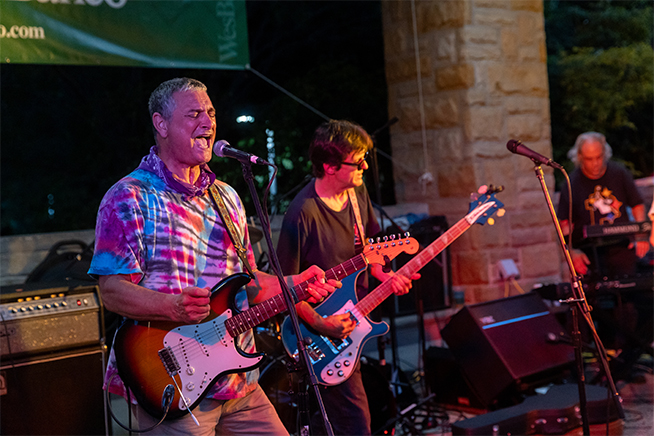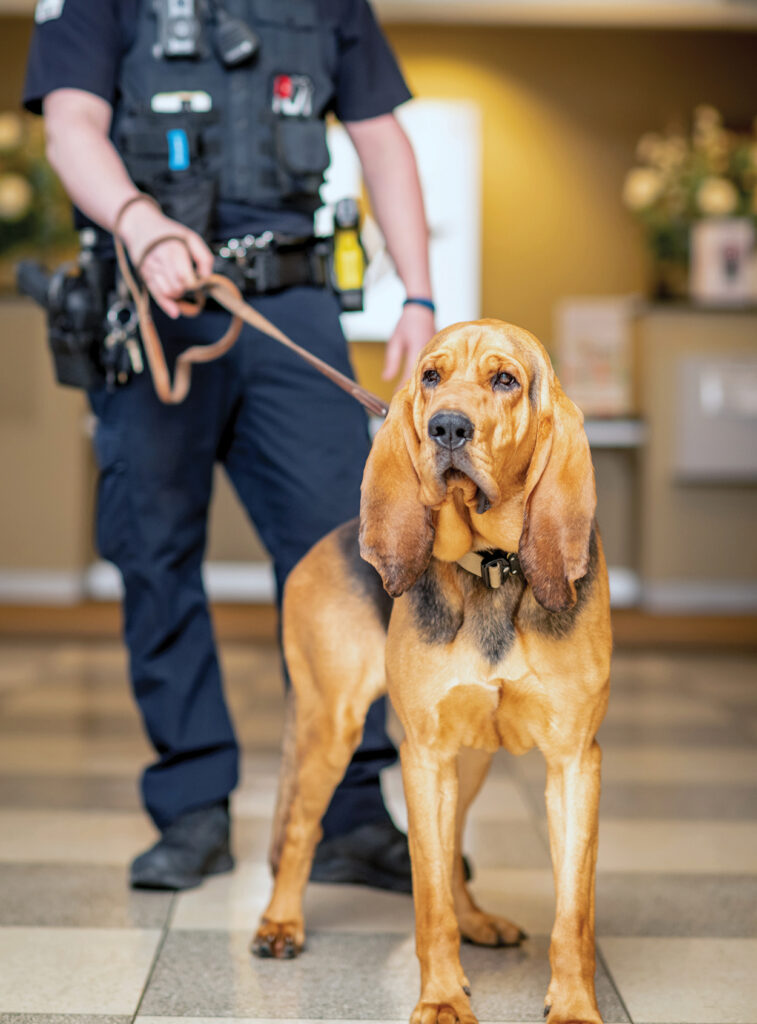Check out what’s
Trending

Final Friday summer concerts
Patrol Services is the police department’s largest and most visible unit. The primary function of this unit is to protect life and property through aggressive patrol of the community and consistent enforcement of laws and ordinances. Officers patrol both proactively and in response to calls for service. They patrol using vehicles and bicycles or on foot. The unit operates three shifts within each 24-hour period.

The MLPD currently utilizes one canine (K-9) officer in the patrol unit of the operations division. K-9 Bear works with Ofc. Daniel McBride. He is a scent discriminant bloodhound and is named for Officer Jerrod Withrow (nickname “BEAR”), who died of cancer in 2021. Jerrod’s parents, Gail and Randy Withrow, were lead donors.
The Mt. Lebanon Police Department decided to make the switch to a bloodhound, based on community need. Mt. Lebanon has more than a dozen schools and preschools in our dense community, with lots of young kids who have the potential to get lost. We also have a number of elderly care facilities in the community, and in the last few years, some fragile seniors have been reported missing for a time. Given that history, officers saw a greater need for a K-9 trained in tracking.
Police K-9s who have previously served MLPD and the community are:
K-9 Jerd – a Czech-born German shepherd, who served MLPD from August 1999 until December 2008 and was partnered with Cpl. Michael Belak.
K-9 Sundi – a Hungarian-born German shepherd, who served MLPD from October 2003 until September 2012 and was partnered with Ofc. Michael Smakosz.
K-9 Snieper – a Holland-born Belgian Malinois, who was partnered with Ofc. Ben Himan, served from 2014 until his death of natural causes in 2021.
The goals of the MLPD Bicycle Unit are to prevent and deter crime in the community by patrolling areas that are inaccessible to motorized patrols. These areas include:
The bicycles have proven very effective in patrolling problem areas where incidents of underage drinking and other crimes occurs. Since the unit’s inception, bicycle officers have made numerous contacts with persons in these areas, resulting in warnings, citations, field interview reports, and arrests.
Bicycle officers have also been involved in:
Community Policing is a high priority for the Bicycle Patrol Unit. Citizens with concerns regularly approach Bicycle Officers during their patrol in the community. Many studies have shown that an officer on a bicycle proves much more accessible to citizens with questions or problems than an officer in a patrol car. Bicycles also allow officers to move quickly through large crowds or traffic-congested areas, making them ideal for special community events.
Officers wishing to become a member of the Bike Patrol Unit are selected based on their performance in a variety of aspects of police work. Selected candidates are then certified as Police Cyclists by attending a 40-hour training course authorized by the International Police Mountain Bike Association. An MLPD Patrol Officer has achieved certification as Police Cyclist Instructor through this organization, allowing him to train other Officers from within the department, as well as Officers from surrounding agencies.
Currently, the MLPD Bicycle Patrol Unit consists of 10 Officers, including one supervisor charged with overseeing the unit’s overall operations. Recently, two additional Police Mountain Bicycles were purchased and outfitted, bringing the total fleet of police bikes to four.
The Field Training program is a formal on-the-job training, coaching, and performance evaluation program that helps new police officers deliver the highest level of service. Experienced MLPD field training officers work with recruits to ensure they have the knowledge and skills to meet the demands of the job. Training officers receive extensive education relative to counseling, training and documenting the performance of recruits.
New officers go through an intensive one-on-one training period for at least three months before they are certified for solo patrol. The field training program provides the solid foundation on which new officers can build their careers.
Check out what’s

Final Friday summer concerts



